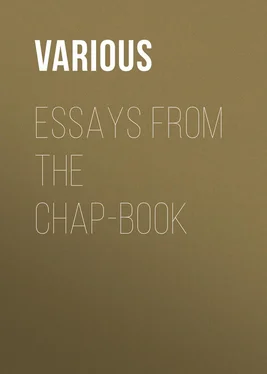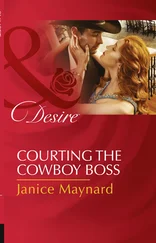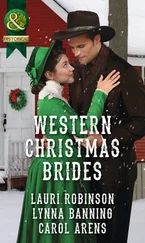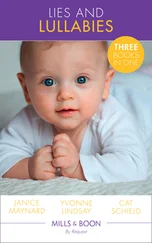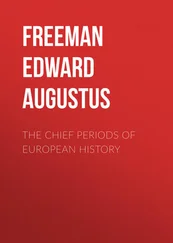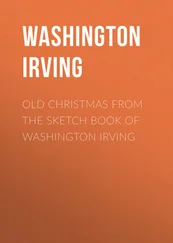Various - Essays from the Chap-Book
Здесь есть возможность читать онлайн «Various - Essays from the Chap-Book» — ознакомительный отрывок электронной книги совершенно бесплатно, а после прочтения отрывка купить полную версию. В некоторых случаях можно слушать аудио, скачать через торрент в формате fb2 и присутствует краткое содержание. Жанр: foreign_prose, sketch, на английском языке. Описание произведения, (предисловие) а так же отзывы посетителей доступны на портале библиотеки ЛибКат.
- Название:Essays from the Chap-Book
- Автор:
- Жанр:
- Год:неизвестен
- ISBN:нет данных
- Рейтинг книги:3 / 5. Голосов: 1
-
Избранное:Добавить в избранное
- Отзывы:
-
Ваша оценка:
- 60
- 1
- 2
- 3
- 4
- 5
Essays from the Chap-Book: краткое содержание, описание и аннотация
Предлагаем к чтению аннотацию, описание, краткое содержание или предисловие (зависит от того, что написал сам автор книги «Essays from the Chap-Book»). Если вы не нашли необходимую информацию о книге — напишите в комментариях, мы постараемся отыскать её.
Essays from the Chap-Book — читать онлайн ознакомительный отрывок
Ниже представлен текст книги, разбитый по страницам. Система сохранения места последней прочитанной страницы, позволяет с удобством читать онлайн бесплатно книгу «Essays from the Chap-Book», без необходимости каждый раз заново искать на чём Вы остановились. Поставьте закладку, и сможете в любой момент перейти на страницу, на которой закончили чтение.
Интервал:
Закладка:
I would not judge all revision bureaus by one; but I must give my experience at the hands of a very reputable one. I had written four books of more than average sale, and had been ever commended by the press for my grammatical construction, when I sent to a bureau for criticism a short magazine-paper. It was returned to me full of very large and legible corrections – or rather alterations such as these: Where I wrote of my heroine being dressed in , etc., my reviser placed gowned in ; where I wrote the little child , the reviser altered to the young babe ; where I said nothing happened after this , to my horror, in heroic blue-pencilled letters, I read my pet aversion, nothing transpired . Where a compound sentence contained several clauses with verbs in the past tense, all dependent clauses were made participial in form; not always to the advantage in elegance, never of moment or indeed of real difference in grammatical construction.
I must confess that I did not send to this bureau my real name, as palpably too well known to men of literary ilk. My three dollars’ worth of advice was contained in a single sentence: “Your style is fair, but commonplace; if you practise literary composition you may succeed; but this article is, in our judgment, not salable.”
I had the pleasure of sending the paper immediately to a well-known magazine and receiving therefrom in payment a check for fifty dollars.
Mr. Meredith and his Aminta
By
Lewis E. Gates
IN his latest book the choppiness of Mr. Meredith’s style and the restless tacking of his method are as great as ever, and those worthy people who delight in the smooth seas and the steady zephyrs of ordinary English fiction will find their experience of “Lord Ormont and his Aminta” very much of a stormy channel-passage. But to people with sound nerves and adventurous spirits the experience is sure to be bracing and exhilarating. Perhaps the most surprising single effect that you get from “Lord Ormont” is that of the tingling vitality of the author. You can hardly realize while reading the book that you have to do with a writer who has been for forty years a tireless worker in literature, and who published his first venture in fiction two years before George Eliot’s first story. The style in “Lord Ormont” has all the audacity of a first rebellion against tradition and convention; the sentences rush forward in all possible rhythms except the languorous ones of the dilettante or the “faultily faultless” ones of the precisian or pedant; the imagination is restlessly self-assertive in its embodiment of every abstract idea in an image for eye or for ear; the tone is almost boisterous in its hilarity or brusqueness; and finally the book sounds everywhere the note of the future, and prophesies change and new social conditions without a touch of misgiving or regret. Perhaps in no earlier work has Mr. Meredith been so aggressive and, at the same time, so confident and buoyant.
As for Mr. Meredith’s technique, it remains in the new book substantially what it has always been, and many of the general effects he produces are familiar to his admirers and delightful in their recurrence. Where save in Mr. Meredith’s fiction can there be found such brilliance of surface? such vividness of dramatic portrayal? Or at any rate where is vividness so reconciled with suggestiveness of interpretation? concrete beauty with abstract truth? In all his novels he sends our imaginations flashing over the surface of some portion of life; he calls up before us this portion of life in all its fine contrasts of color and form, of storm and sunshine, of mid-day and moonlight; and yet at the same time he constrains us to pierce below the surface and to understand intuitively why the drama moves this way or that, what forces are in conflict, what passions are flushing or blanching the cheek, what fancies or ideals are making the eyes dream on a distant goal.
More nearly than any other living novelist, Mr. Meredith succeeds in overcoming the difficulties forced on the writer of fiction by the double appeal of life. Life is a pageant and life is a problem; it smites on the senses and allures the imagination, but it also challenges the intellect; it has power and beauty, but it has also significance. Now most writers of fiction who reveal to us the inner meaning of life allow its beauty and power to fade into shadowy vagueness; and those who give us the dramatic value of life too often lack penetration and philosophic insight. One of Mr. Meredith’s greatest claims to distinction lies in the fact that he, better than any other English novelist, has reconciled this conflict between vividness of portrayal and depth of interpretation. He has grasped English life in all its enormous range and mass and complexity; he has flashed it before us in all its splendid vividness for eye and ear and imagination; and at the same time he has made it suggestive to thought, has comprehended it through and through in its subtlest relations, and in portraying it has breathed into it the breath of a philosophical spirit.
If we analyze Mr. Meredith’s pages carefully, we find very few of those long disquisitions on character with which the pages of a psychological novelist are covered. He deals almost as constantly with acts, with dialogue, with what meets the senses, the eye and the ear, as the elder Dumas. It is a mimic world of images he gives, not a globe of the earth with scientific terms and black marks on yellow pasteboard. He is always primarily an artist, not a psychologist or a descriptive sociologist. Too often when we finish one of George Eliot’s stories we feel that she has explained her characters so exhaustively that we should not know them if we met them on the street. We have had so much to do with their ganglia and their nervous systems, and with the ashes of their ancestors, that we have little notion of the characters as actual living people. If a psychological novelist were to write out a professional analysis of one’s best friend, it may fairly be doubted whether one would recognize the description. In fact, in real life it is only criminals whom we are expected to recognize by anthropometric memoranda, – by the length of the index finger, the breadth of the ear, the distance between the eyes, and by the lines on the finger-tips.
Now Mr. Meredith avoids all anthropometric statistics and chemical analysis, and gives us the very counterfeit presentment of men and women as in actual life they go visibly and audibly past us; and yet he so seizes his moments for portraiture that the soul, the inner life, the character, photographs itself on the retina of a sensitive on-looker like a composite picture. He makes all his characters and scenes, and all the life he portrays, instinct with truth; and yet this truth is implicit; the author very rarely indulges in pretentious talk on these topics. For the most part, he is apparently busy putting before us the picturesque aspects of life and its dramatic moments.
Конец ознакомительного фрагмента.
Текст предоставлен ООО «ЛитРес».
Прочитайте эту книгу целиком, купив полную легальную версию на ЛитРес.
Безопасно оплатить книгу можно банковской картой Visa, MasterCard, Maestro, со счета мобильного телефона, с платежного терминала, в салоне МТС или Связной, через PayPal, WebMoney, Яндекс.Деньги, QIWI Кошелек, бонусными картами или другим удобным Вам способом.
Интервал:
Закладка:
Похожие книги на «Essays from the Chap-Book»
Представляем Вашему вниманию похожие книги на «Essays from the Chap-Book» списком для выбора. Мы отобрали схожую по названию и смыслу литературу в надежде предоставить читателям больше вариантов отыскать новые, интересные, ещё непрочитанные произведения.
Обсуждение, отзывы о книге «Essays from the Chap-Book» и просто собственные мнения читателей. Оставьте ваши комментарии, напишите, что Вы думаете о произведении, его смысле или главных героях. Укажите что конкретно понравилось, а что нет, и почему Вы так считаете.
